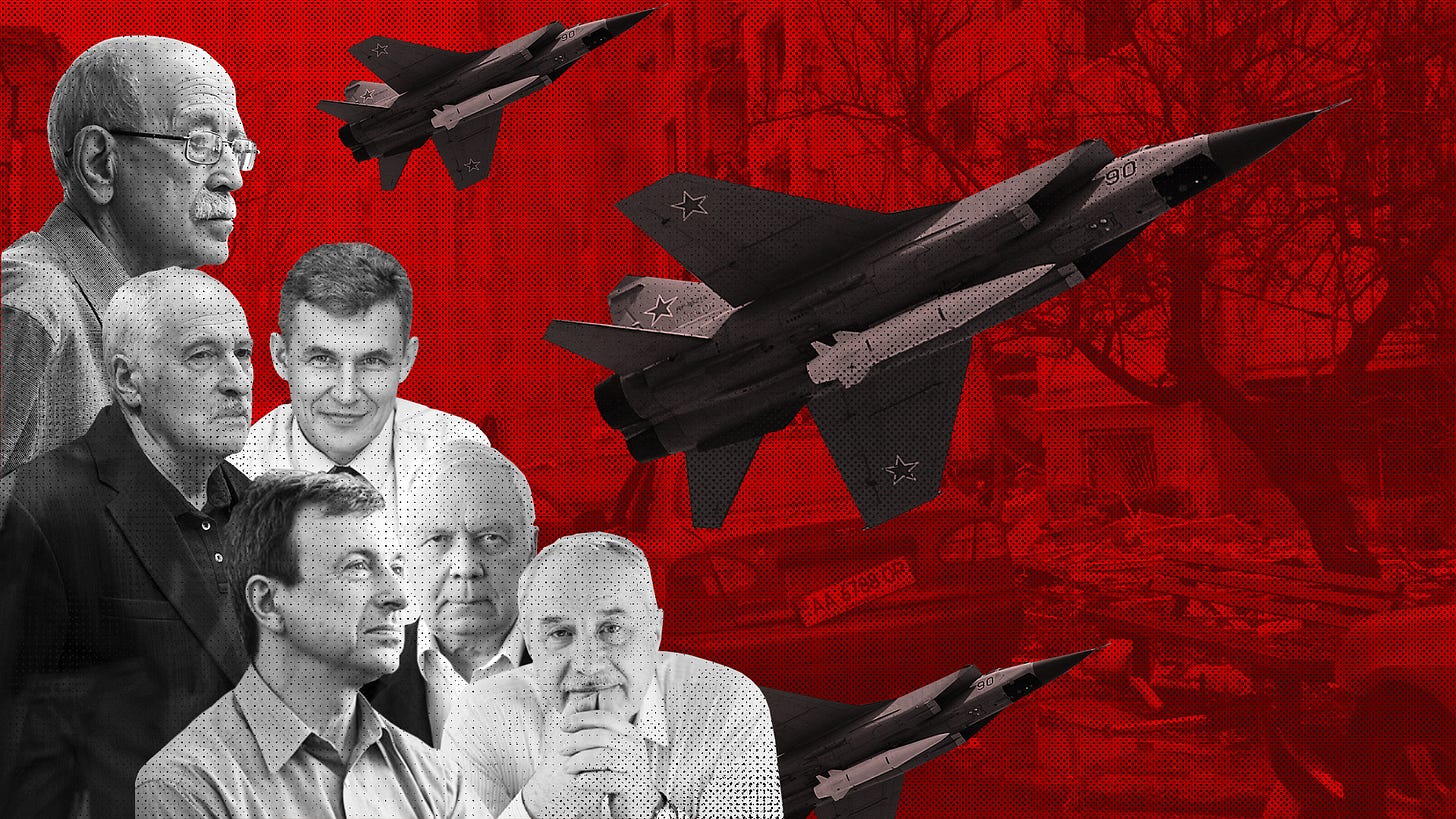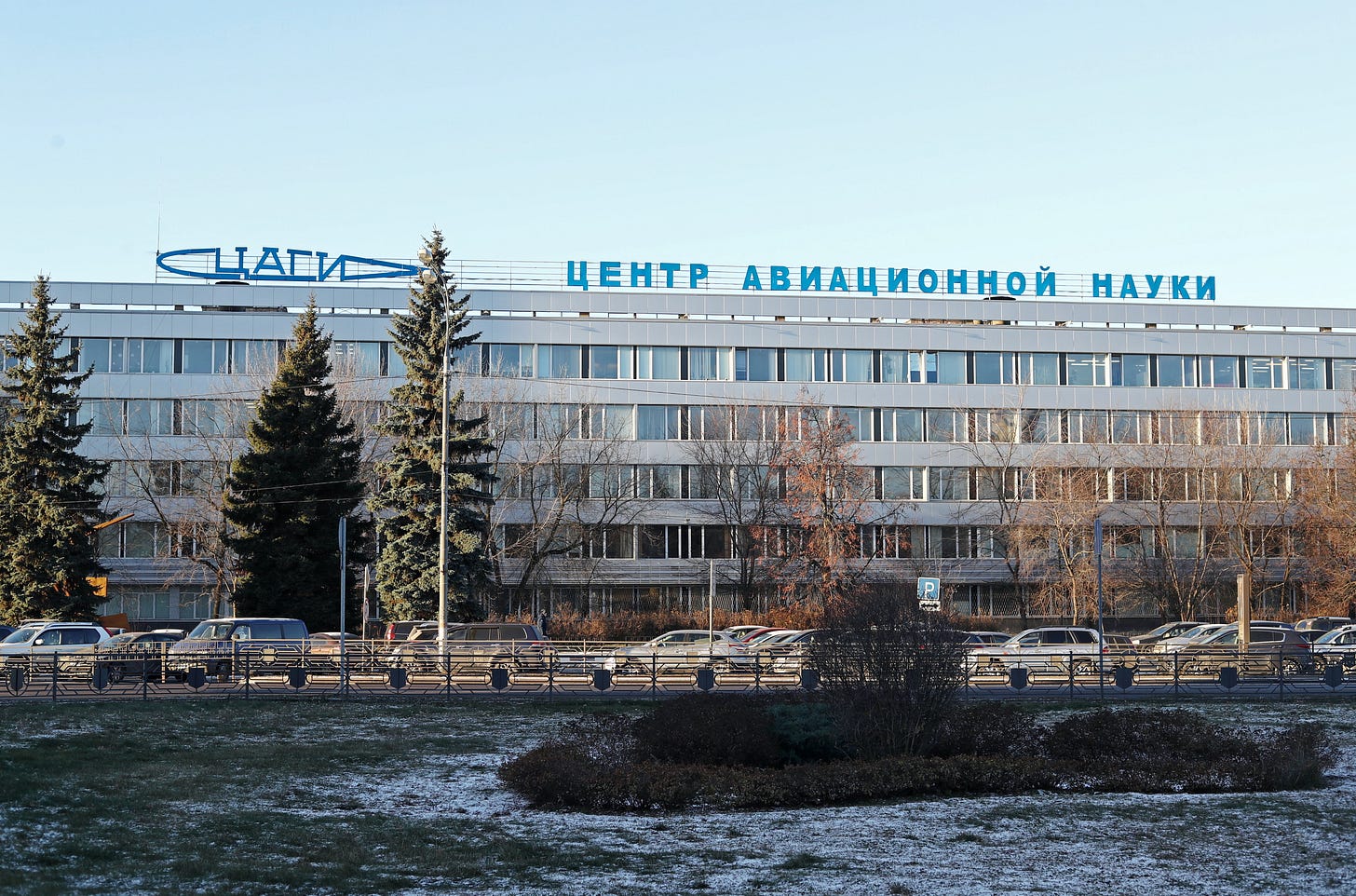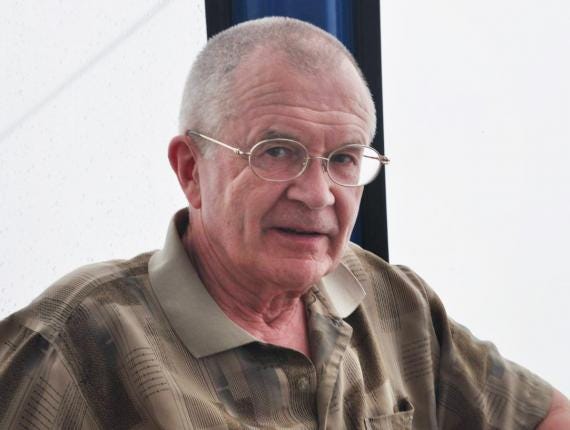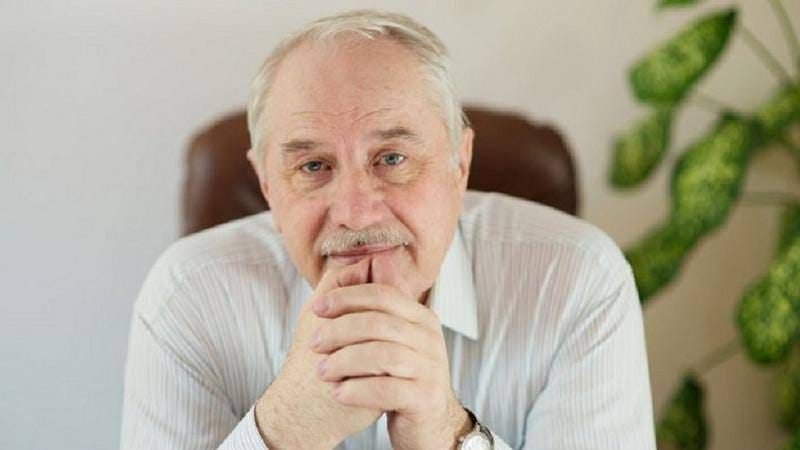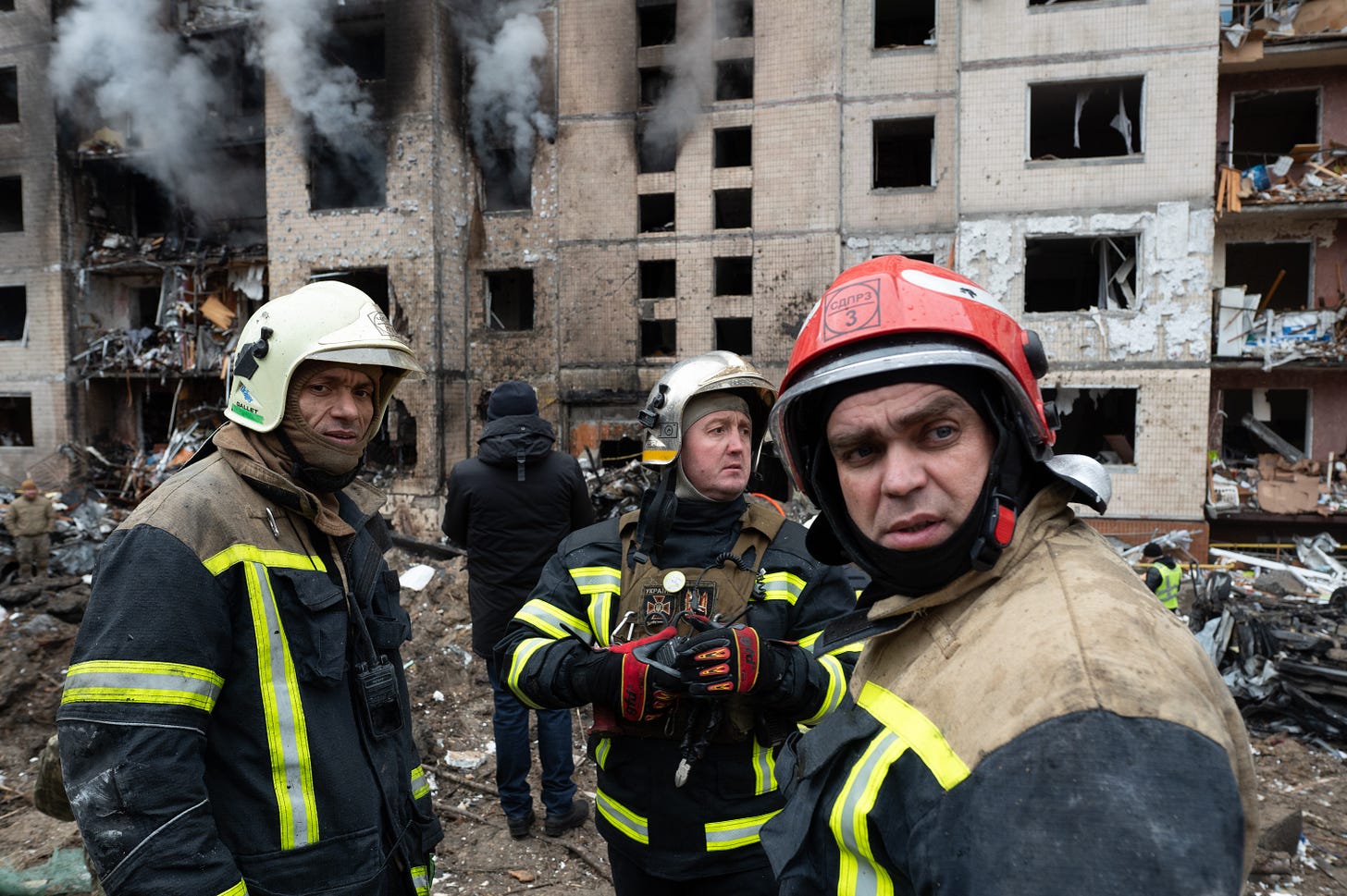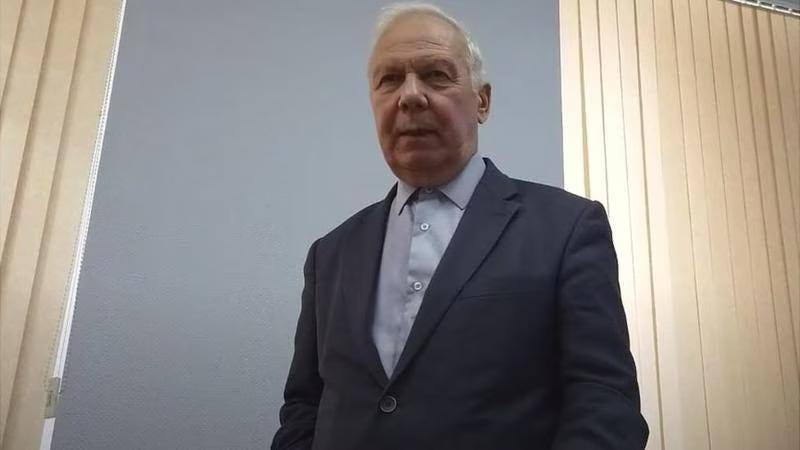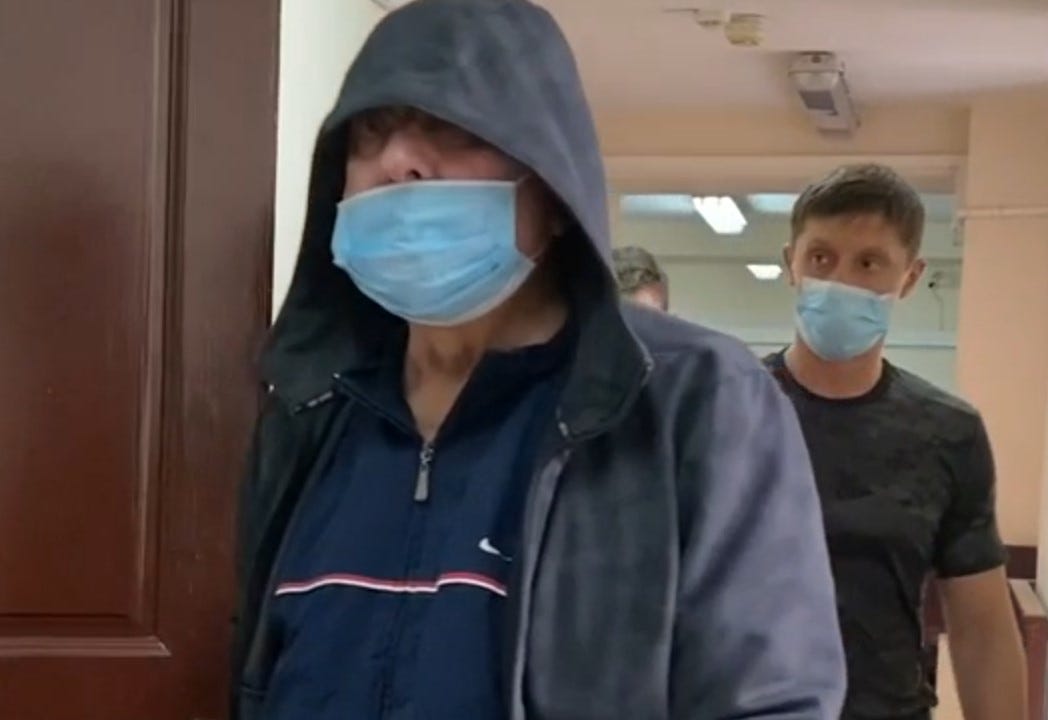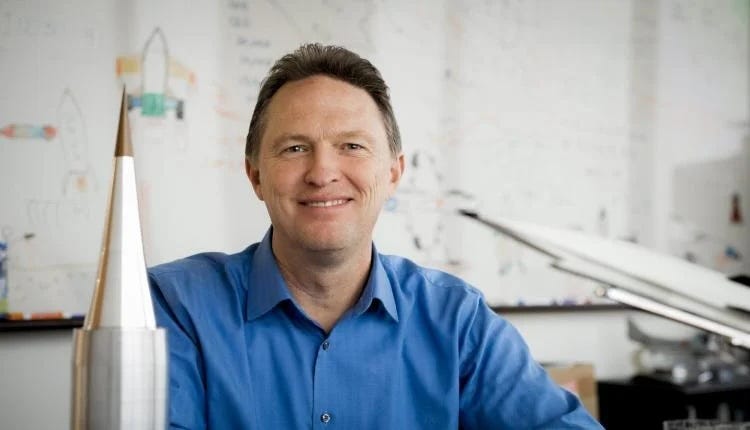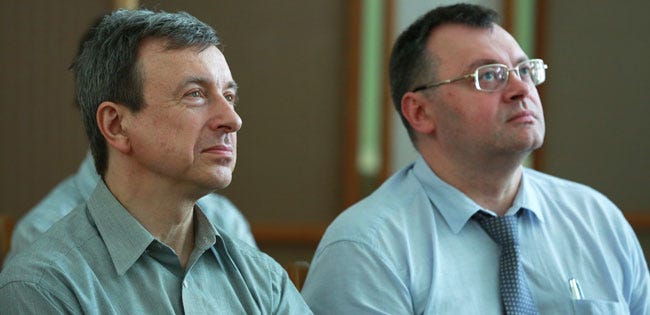"To flatter Putin's ego”: Why Russia’s top physicists are being jailed
A series of arrests coincides with Vladimir Putin’s boasting about the country’s new hypersonic weapons.
By Sergey Goryashko.
Over the past six years, the FSB, the successor to Russia’s KGB, has accused a dozen physicists of treason. They have been sent to jail since 2018, when Vladimir Putin first began publicly speaking about the production of new, hypersonic missiles in Russia.
The men stand accused of transferring secret weapons information abroad. But their colleagues say they worked very far from the field of military development, and were simply theoretical scientists.
The BBC has looked at what state secrets the FSB is searching for in these international projects – and has spoken to relatives of the imprisoned scientists.
The Hypersonic ‘Gun on the Wall’
“We have created for the first time offensive strike weapons systems that the world has never seen before,” Putin boasted in a 2020 interview with the Russian state news agency, TASS. “Now the US is playing catch-up. It’s a unique situation, it’s never happened before. In the first instance, of course, I’m talking about hypersonic attack weapons systems.”
The reporter made a joke in response, paraphrasing Chekhov: “A hypersonic gun on the wall in the first act should fire in the second.” Two years later, Russia started the war in Ukraine, and actively put these hypersonic missiles to use.
Putin first spoke in 2005 about weapons complexes that would “operate at hypersonic speed.” In 2018, he revealed them – “without parallel in the world” – in his address to the Federal Assembly. The parliamentarians and VIPs were shown a simulation video in which such missiles were simulated in flight towards the US.
“They will be virtually invulnerable, and the speed will be hypersonic. It will be like a meteorite,” he declared.
The new silo and ground-based strategic missile system was named ‘Avangard’, and the aviation system was called ‘Kinzhal,’ or ‘Dagger.’ Putin wound up his speech with a threat to the West: “Nobody listened to us. Listen to us now!”
"Scientists study physical processes. Let’s say they are given a research topic: how certain metals could deform at hypersonic speeds, or what the zones of turbulence would be like. This is not about 'making a rocket', but about the study of physical processes."
He also thanked the weapons developers. “They are truly all the heroes of our time.”
Putin has mentioned hypersonic weapons in speeches at least 70 times since then. Over the same period, since 2018, a dozen Russian scientists associated with hypersonic work have found themselves behind bars. All of them are accused of treason.
Several at once were arrested by the FSB at the Central Research Institute of Machine Building (TsNIIMash) and the Central Aerohydrodynamic Institute (TsAGI) in the suburbs of Moscow, as well as at the Institute of Theoretical and Applied Mechanics (ITPM) of the Siberian Branch of the Russian Academy of Sciences in Novosibirsk.
Alexander Kuranov, a 76-year-old scientist who previously contributed to a hypersonic plane project, received a 7-year prison sentence in a closed door trial held over just two sessions on April 18, 2024. The FSB arrested the elderly scientist back in August 2021.
“With this approach, other areas of science will also soon be affected,” says a colleague of one of the scientists held on treason charges. “For now, they have picked on one of the most ‘fruitful’ lines of enquiry. But they don’t really understand it, and mistake ‘hypersonic’ for something completely different.”
“Hypersonic is a topic you are now obliged to put people in jail for,” says Yevgeny Smirnov from the ‘First Division’ human rights and legal organisation, which supports those facing espionage charges. Smirnov himself, before he was forced to leave Russia in 2021, used to defend treason cases in court, including those of scientists. He says that in private conversations, FSB officers would often admit that the cases about selling hypersonic secrets abroad were being opened “to satisfy the wishes of those higher up.”
“The case documents state that Russia has highly advanced technologies in the field of hypersonic weaponry that have no equivalent elsewhere in the world,” Smirnov says. “And allegedly foreign intelligence officers are on the hunt for them.” The investigators, he says, do not hide that they report to Putin on every case of treason that involves scientists.
“The physicists arrested in Novosibirsk never had anything to do with ‘Kinzhal’,” says Vladimir Lapygin, a former TsNIIMash employee who was convicted of treason and released in early 2020. “They were engaged in theoretical research and development. Everyone who was arrested in relation to hypersonic weaponry was very far from the topic.”
Yevgeny Smirnov, the lawyer, also asserts that none of the dozen scientists arrested in recent years for disclosing ‘the secrets of Russian hypersonics’ had anything to do with the defence sector. The scientists caught up in the ‘Novosibirsk case’ were simply specialists in the aerodynamics of hypersonic flows.
"Scientists study physical processes. Let’s say they are given a research topic: how certain metals could deform at hypersonic speeds, or what the zones of turbulence would be like. This is not about 'making a rocket', but about the study of physical processes," Smirnov explains.
Afterwards, anyone can make use of their findings, he says: including military institutions involved making weapons. But in the treason cases, the defendants were engaged in primary research and fundamental science, not weapons development.
Smirnov says the FSB's goal is to prove that spies are hunting after Russian missile secrets: "To flatter the ego, by showing that Russian missiles are the best, and they are trying to steal them."
“Any papers with scientific formulas written on them were confiscated”
In the spring of 2023, when a third man among them was arrested on treason charges, scientists at the Institute of Theoretical and Applied Mechanics (ITPM) decided to write an open letter and sound the alarm in his support.
It was only thanks to this letter that his name became public knowledge: Valery Zvegintsev was being held under house arrest, while two other ITPM colleagues working on aerodynamics, Anatoly Maslov and Alexander Shiplyuk, had been in pre-trial detention since the previous summer.
“Their experience and professional reputation would have allowed them to land highly paid, prestigious jobs overseas. But they did not leave the Motherland. They devoted their lives to Russian science,” the authors wrote in their open letter.
But the letter did not mention another physicist, remanded by a court in Novosibirsk on the same day as Zvegintsev: Vladislav Galkin, an associate professor at the oil and gas department of the Tomsk Polytechnic Institute, had also been arrested on treason charges. His detention was first reported only in mid-December - even though he had been behind bars since April 7th. Galkin was not employed at ITPM but, like the other three scientists who had appeared on the radar screen of the FSB, he had been working in the field of hypersonic technology.
“Men in black masks, holding guns, came to search the house at 4 in the morning,” a close relative of Galkin says, requesting anonymity for fear of their safety. “They dug through everything they could, and said that they would have lifted the floor boards too, if they were looking for drugs. Any papers with scientific formulas written on them were confiscated, along with a mountain of files.”
The same scenes happened at the home of another scientist, Vladimir Kudryavtsev, who was arrested on treason charges in 2018. He died before his case came to trial.
“They arrived at five or six in the morning,” his widow Olga recalls. “Well, it was just funny: we have nothing to hide. They took the computer but there was nothing else. I had letters, which we had written to each other when we were young, and an FSB officer spent along time carefully studying them. I came up behind him and asked ‘So, have you found anything of interest?’ He blushed all over immediately.”
She remembers the security officers asking ‘where the gold and diamonds were hidden’. They even dug their way through a pile of sand left in the garage.
One of Vladislav Galkin’s relatives says he initially spent three months in solitary confinement in a Novosibirsk pre-trial detention centre. The 68-year-old scientist was then put in a cell with four other inmates. Now he is jailed alongside ten cellmates.
Galkin’s wife, Tatyana, says the FSB has forbidden her from commenting on the case while it remains live. “I won’t risk it, because we are saying our prayers every day,” she says. “I don’t know his area of work. I am not a physicist by education. I am a historian.”
She says that until his arrest he would constantly be writing and re-writing articles. “He would finish one, and then some other thought would pop up – ‘What if I try it this way?’ That’s how the mind of a techie works,” she says.
When he wasn’t working, she says her husband organised chess competitions with his grandchildren. “I don’t know how to play the game. Only drafts,” Tatyana Galkina says. She told the grandchildren that he was on a business trip. “They ask “Where’s grandpa, why hasn’t he come home?” And I say it’s just that kind of trip.”
Hypersonic criminal progression
Galkin is the author of roughly 100 scientific papers, including more than a dozen published in foreign journals between 2002 and 2021. Valery Zvegintsev was a co-author with Galkin's in nine of them. His most recent research was into numerical methods in fluid, gas and plasma mechanics.
The online archive of Tomsk Polytechnic University, where Galkin worked until recently, lists more than 20 of his works, including those he wrote with Zvegintsev, and with Alexander Shiplyuk from ITPM.
A source at ITPM told the state news agency TASS the case against Zvegintsev may have been prompted by an article published in an Iranian journal in 2021. Galkin was also published by the journal. And both his work and Zvegintsev’s were printed in English in the proceedings of the annual International Conference on Aero-Physical Research Methods, held in Novosibirsk since 1996. It is due to meet again this year.
“Let’s see how many foreign participants come to the conference this time,” Shiplyuk’s relatives commented when asked about the prospects for international cooperation with ITPM.
The scientists worked together closely. In 2001, Zvegintsev founded and headed up the Aero-Fluid Dynamics at High Speeds laboratory at the institute. Shiplyuk, the future institute director, took over leadership of the lab in 2006. The aerodynamics department as a whole was supervised by Maslov, who was deputy director of the institute for two decades.
"Alexander Nikolaevich [Shiplyuk] took the news of Maslov's arrest very hard. He was his favourite teacher, scientific supervisor, and the head of his dearest laboratory," members of Shiplyuk's family said in answers to written questions.
Shiplyuk’s son Mikhail is a post-graduate student who also worked at ITPM and is now on academic leave. Maslov’s son also apparently worked at the institute, according to its phone directory, at least until 2020.
The three arrested men were united not just by their workplace, but also by their participation in ‘FP7,’ the Seventh Framework Programme of the European Union – a grant fund for space research. It is managed by the von Karman Institute of Fluid Dynamics, based in Belgium. As well as ITPM, the two other scientific organisations mentioned above participated in the programme - TsAGI and TsNIImash. The FSB came to visit them, too, and six of their employees ended up behind bars – again, on treason charges.
All the physicists were acquainted. “I knew them all: Zvegintsev, Shiplyuk, Maslov,” says Vladimir Lapygin, the TsNIIMash scientist who was arrested for treason and later released. Kudryavtsev’s widow says her husband was also friendly with Maslov from ITPM.
“They took away the most decent ones, those with the best reputation in the whole history of this institute,” one IPTM employee said, asking for anonymity for his safety’s sake.
Shiplyuk’s family were supported by the institute personally and by collecting money to pay lawyers. “We were worried at first that the other workers would cross the street when they saw us. But it hasn’t happened so far. There has been a sincere and deep interest in his case that has not subsided - even a year and a half since his arrest.”
They say that in a letter he wrote in January, Shiplyuk said he had received “so many letters and postcards from so many different people that they could not be kept in the cell, because of the rules of the state prison service.”
Often, those accused in treason cases are linked together by the FSB, according to the regular practice of investigators. The journalist Ivan Safronov, himself arrested on treason charges and sentenced to 22 years hard regime, explained the reason – the FSB officer needs to build a ‘criminal progression’ that ensures that the accused not only confesses his guilt but implicates others as well. This allows the investigators to initiate new cases.
Kudryavtsev’s widow recalls that her husband was offered a plea bargain by the investigating officers in which he would admit his guilt and also point the finger at someone else. He refused the deal.
Others plead guilty, like Kudryavtsev’s protégé Roman Kovalyov, who provided the FSB with incriminating testimony against his former mentor. Kuranov, sentenced on April 18th 2024 to seven years in a strict regime colony for treason, also opted to collaborate. According to the Kommersant newspaper and a BBC source familiar with the case materials, Kuranov bore witness against 77-year-old Alexander Maslov, whose treason case was being heard simultaneously in the same courthouse.
A professor of physics, Kuranov was director of the St. Petersburg Scientific Research Enterprise for Hypersonic Systems. His case is classified, but in 2021 the Interfax news agency reported that according to the investigation, Kuranov “had been engaged in hypersonic technologies for many years, and handed over to a foreign citizen classified information about these scientific developments."
Back in 2001, as CEO of a St. Petersburg-based research enterprise for hypersonic systems, Kuranov openly talked about the trials of the ‘Ajax’ hypersonic plane and his work with American partners. The project had been mothballed in the mid-1990s, but was revived when the US Air Force decided to back it. Kommersant notes that Russian developers at the time were in competition for funding with US and French counterparts, in part due to the lower budgets available for such work at home. US representatives at a St. Petersburg conference that year said Kuranov made no secret of his goal of securing millions of dollars in investment from the US military for his project.
Kommersant quotes Kevin Bowcutt, the chief specialist at Boeing in hypersonic systems at the time, as saying international cooperation was essential for such projects, given the human and financial resources such work demands. When approached by the BBC for his response to the series of recent arrests, Bowcutt chose not to respond to our questions. Boeing said “we don’t have any comment at this time.”
Kuranov expected to be able to develop a working prototype of his aircraft within a decade. He spoke of plans to open negotiations with the Chinese, who had shown an interest in utilising Russian hypersonic research for civilian aircraft. A deal with China to pool resources on the work was initialled in April 2001 (by Anatoly Turchak, who headed the Leninets holding, and is the father of the current leader of the governing United Russia party, Andrei Turchak).
Two decades later, those like Kuranov who had openly and with official encouragement collaborated with the US, China and other foreign countries, were charged with treason. Among them, only Kuranov spoke publicly about being involved in applying hypersonic research to weaponry. "In the next 10-15 years, the primary task for hypersonics is the creation of a hypersonic cruise missile," Kuranov told Izvestia in 2011. Ten years on, he was behind bars.
“First they were thrust into the foreign journals with a broom, and then they were put in jail for it”
“It seems that just by doing your job, you can become a traitor to the Motherland!” exclaims one of Galkin’s relatives. “They have a contract in the Polytechnic University. It states he is obliged to conduct scientific work. And foreign publications were always highly valued. Time passes, the ‘special military operation’ in Ukraine starts, and suddenly “Oh, it turns out you were published abroad!” But they were the ones who wanted Russian science to be international. He did as they asked of him. If they had banned foreign publications, he wouldn’t have written for them. First they were thrust into the foreign journals with a broom, and then they were put in jail for it.”

The authors of the open letter in support of the ITPM scientists note that the presumption of guilt was based on the scientists’ presentations of reports at international seminars and conferences, the publication of scientific articles in top-ranking overseas journals, and their participation in international scientific projects.
“The Ministry of Education and Science, following the President’s orders, directly instructs institutes to engage in work to strengthen overseas cooperation,” says Shiplyuk’s family. “For his part, he conscientiously carried out this instruction. Risk assessment was not his job.”
His family says that representing ITPM internationally was part of Shipluk’s basic job description.
In their open letter, the ITPM authors said the work of the arrested physicists had repeatedly been checked by the institute’s expert commission for the presence of classified information, and it had found none. The defence lawyer Yevgeny Smirnov confirms that the same was true of the work published abroad by those arrested for treason from TsAGI and TsNIIMash.
In none of the cases did it prevent the FSB from filing criminal charges based on the scientists’ international projects. In the case of TsAGI, the secret service officers arrived because in connection with the HEXAFLY-INT project to develop hypersonic civilian aircraft. The work was coordinated by the Belgian scientist Johan Steelant from the European Space Agency. The FSB decided he was a spy.
Johan Steelant didn’t reply on an email with our questions and didn’t answer on LinkedIn. However the European Space Agency (ESA) sent us this comment about HEXAFLY project.
“HEXAFLY was a research project on civil high-speed air transportation in speeds up to Mach 8, set up in 2012 and sponsored at the time by the European Commission, and a European consortium led by ESA consisted of various French, German, Italian and British companies and research institutions was established. The project is long finished. There was also a separate international cooperation agreement between the consortium and the Russian entities TsAGI, Moscow Institute of Physics and Technology, the Flight Research Institute and the Central Institute of Aviation Motors.
All technical contributions and exchanges were agreed and foreseen in the cooperation agreement between the European Consortium and the Russian entities.
Dr Johan Steelant led and coordinated ESA’s involvement and the efforts of the European consortium. ESA is aware of subsequent events. We are equally aware that the name of Dr Johan Steelant has been brought into these proceedings. Dr Johan Steelant is a valued member of ESA and during his tenure as the coordinator of HEXAFLY, he was conducting his role in accordance with the mutually agreed terms of a cooperative agreement, and in the best interest of all members of this international cooperation at the time.”
“My personal feelings are entirely negative,” says one of Vladislav Galkin’s colleagues who wished to remain anonymous. “For years, the ministry made us publish in foreign journals and work alongside foreign scientists, and the obligation still hasn’t been revoked. Meanwhile, the FSB thinks that contact with foreign scientists and writing for foreign journals is a betrayal of the Motherland. There’s a conflict within the system.”
He told us that the Ministry of Education and Science is doing nothing to resolve it: “In the ministry lists, 60% of the publications are still aimed at foreign journals.”
He says ITPM has ceased contact and cooperation with foreign institutes and journals and halted its research into hypersonics. “It is hard to work in such conditions. It’s not so much the restrictions but the absence of detailed guidelines and clear laws. We are biding our time, but believe common sense will prevail,” the scientist said.
After the open letter from ITPM was published, the Kremlin issued a comment. “We saw their appeal, but the special services are at work and doing their duty. The accusations are serious ones,’ said Dmitry Peskov, the presidential spokesman. But it was just a brief flurry in the press, Shiplyuk’s relatives say. There has been no further reaction since then.
The letter was a rare example of public support for scientists arrested on treason charges. The FSB has managed to scare Russia’s physicists - as well as their colleagues abroad. Lawyers have tried and failed to convince the latter to be witnesses for the defence in treason cases, and help their Russian partners prove they were communicating with scientists, not spies. According to Smirnov, “they are utterly terrified since the poisoning of Sergei Skripal [a double-agent whom Russian agents tried to murder in Salisbury, UK, in March 2018].”
The Russian colleagues of the defendants, he adds, also usually refuse to be defence witnesses in court and avoid commenting on the prosecutions. “Everyone is scared and hiding in their corner,” Kudryavtsev’s widow says.
Scientists are still afraid to this day. “I made a commitment to a certain organisation, so I cannot comment,” said one ITPM worker when contacted, saying he feared FSB persecution. Another employee said to get back to him in a month. Three others didn’t answer calls or respond to messages. “They’ll put me back in jail after talking to you,” said Vladimir Lapygin, the former TsNIIMash scientist.
“If I stick a pencil in your eye, it becomes a weapon”
Almost all the cases of treason against scientists opened recently have followed a similar path, says Smirnov: FSB officers came to the institutes and searched for international projects conducted over the past 10-15 years for what "suits them best."
"The mission was not to find guilty men, but to jail several people from each institute," Smirnov asserts. The FSB then asked experts to check the projects and presentations they were interested in for the presence of state secrets.
“The root of the problem lies in the conclusions drawn by the experts who uncover the ‘secrets,’" Smirnov explains. The experts are often military engineers from one of the several dozen institutes under the Russian space agency, Roskosmos. “If you have a civilian scientist and a military one look at the same work, the military scientist will naturally see some state secret or other everywhere he looks, even though the physics in military and civilian engineering is exactly the same,” says Smirnov.
The expert commission will call even textbook information a state secret, Smirnov says. “Let’s say you need a multiplication table when drafting a presentation, and also when building a Burevestnik rocket. You are using the self-same technology.” This is the way a scientist who presents his work abroad, or participates in an international project, gets accused of treason.
Lapygin agrees that the logic of investigations is exactly as above, and recalls his own interrogation: “We had some models for testing in aerodynamics tubes that looked either like missile warheads or the shapes of missile fairings. The shapes of the things themselves are not a secret. The investigating officer said to me: ‘Well, these are rocket warheads!’ I took out a pencil and said, ‘Here is a pencil – neither a secret, concealed, nor a weapon. But if it stick it in your eye, it becomes one. I am not jabbing you with it, though. Therefore, the pencil cannot be considered a classified technology.’ The fact that a missile fairing has an elliptical shape does not make an ellipsis a secret formula.”
FSB investigators also found the shape of a rocket in the research Kudryavtsev sent to the von Karman Institute in Belgium. As his widow recalls, the institute was tasked with studying the behaviour in turbulent flows of a model formed like a sharp cone. The experiment did not work, so the physicists rounded the cone to achieve the turbulent flow they needed. The study was a success, but the FSB discovered secret information in it: the cone with a rounded tip by now resembled a rocket. Expert military engineers agreed that the behaviour of such a model in turbulent flows would be useful to them – and therefore that it constituted a state secret.
“Sit quietly, don’t go into print in public, and don’t meet foreigners,” says Lapygin. “Write articles in secret and you’ll get your salary and a good appraisal.” In his opinion, that’s the only way for a scientist to save himself from the accusation of treason.
“But it is bad for our country because it means there will be no progress. Not everyone is bothered, though. They think you can live this way, and that it’s not so terrible.”
Talking about the FSB today, Lapygin remembers how back in Soviet times there was a KGB agent at TsNIIMash in charge of guarding state secrets.
“He copied down formulas from a textbook into a closed notepad, which made them classified. It didn’t do his mind any good.”
Lapygin is convinced that what for the FSB today calls betrayal of the state, a scientist in Soviet times would have got away with a reprimand, or at worst lost his job. “There is no way they’d have had a treason case pinned on them.”
Hundreds of Russian scientists have left the country since the start of the full-scale war in Ukraine. But even before the invasion, the brain drain was startling: an official study in 2018 said 800,000 Russians with a higher education had gone abroad.
In total, Russia’s law enforcement agencies have arrested 12 scientists on charges of treason. All of them were in one way or another connected with the study of physics at hypersonic speeds. Three have already died.

As well as Kudryavtsev, there was his colleague from TsNIIMash Roman Kovalev – his wife passed away when he was in detention and he himself died a month after being freed from jail. Dmitry Kolker, the head of the Quantum Optics Laboratory at the Institute of Laser Physics, was detained in hospital despite having fourth-stage pancreatic cancer. He died two days later.
More than 20 years ago, Putin was already president, while Kolker was working at the Institute of Laser Physics. They spoke on State TV during Putin's first annual call-in marathon.
"What will happen to fundamental science, and will funding for fundamental research be increased?" Kolker asked. Putin assured him that science is more important than oil and gas, "and of course, the state should pay necessary attention to science." The state did indeed pay attention to scientists - the FSB did.
Two scientists from TsAGI, Anatoly Gubanov and Valery Golubkin, have both been handed 12-year sentences in a ‘strict regime’ prison colony. Gubanov has appealed against the verdict and his lawyer, Olga Dinze, is hoping for a reduced sentence.
On April 17, Russia’s Supreme Court overturned Golubkin's case decision and ordered a review. Golubkin participated in the hearing personally, having been transferred from a colony in Petrozavodsk to Moscow.
Currently held in Lefortovo prison, Golubkin will experience better conditions there compared to the colony, according to Maria Eismont, human rights lawyer.
"We hope doctors will examine him, conduct tumour marker tests, and he will be closer to his relatives, who can visit regularly," Eismont said. Golubkin underwent surgery for colon cancer several years ago.
Sergei Meshcheryakov of TsNIIMash received a seven-year suspended sentence in 2021. “He had cancer. He wanted to reject the suspended sentence and fight the case,” Lapygin recalls.
Valery Zvegintsev from ITPM remains under house arrest in Novosibirsk.
The ITPM director, Alexander Shiplyuk, is in Moscow’s Lefortovo FSB detention centre. “He has never complained about the conditions there, and over the past 18 months we have got used to the situation,” his family says.
“He is in a two-man cell, with good ventilation and no heating problems. We regularly bring food parcels or send him things to keep up his health and strength. It isn’t always easy to do this from Novosibirsk, but we are grateful to relatives and people in Moscow who care about him.”
Over the past year, Shiplyuk has been only allowed to meet his wife three times and his children once. He was permitted ten phone calls to relatives.
His son Mikhail says his father lived for his work. “He essentially devoted his life to it.” Shiplyuk used to enjoy snowboarding, but even then he combined it with attending winter conferences on physics.
Mikhail says the books he reads in jail now have nothing to do with science. He is more interested in philosophy, and has memorised Pushkin’s poem ‘Eugene Onegin’ by heart.
“A father gives a sense of constancy. Without him, it disappears, and you are left to fend for yourself, without a father’s shoulder to lean on,” he says. “I miss his support and advice. We write each other letters, but not about everything. Just the essential things.”
Shiplyuk’s lawyer, who is afraid to state their name, says the scientist insists on his innocence. The preliminary investigation is now drawing to a close. “This is all I can say regarding procedural matters, since it does not touch on the case materials. I have made a non-disclosure commitment, because according to the investigating officers the case materials contain classified information.”
77-year-old Anatoly Maslov, Shipluk’s colleague at ITPM, was also held in Lefortovo, but the investigation is now complete and the case has been heard over the past seven months at a court in St. Petersburg. He has not admitted guilt. Shiplyuk’s son Mikhail knows Maslov, too, and is in touch with him. “He is not as emotionally stable and positive in his letters as my father,” he says.
Maslov is also being defended by Olga Dinze. She says his trial is being held separately from the other ITPM cases. “His area of science was always turbulence and had nothing to do with hypersonics,” she says. “But he got caught up in it, and some have died, and others have to answer.”
The defence also has to prove that Maslov does not have specialized knowledge in a specific scientific field—Dinze could not specify which one, as the case materials are classified
“He does not admit guilt; there's nothing to admit there. The case is based on the fantasies of the prosecution," Dinze asserts. “When he grasped what was going on, he was dismayed and apathetic about participating in the hearing," she explains. "We are trying to encourage him, and say we need at least to make the process awkward for our opponents.”
Vladislav Galkin is only able to see his relatives through a glass partition at the detention centre where he is held in Novosibirsk. “He holds the phone on one side, and we hold the receiver on the other,” his wife Tatyana says.
“I was thinking the other day I could write a letter. I don’t know to whom, maybe the prosecuting officer. Well, obviously not to Putin,” she says. “I could ask them to put me in the same pre-trial detention centre. It would be easy enough – you just have to suspect someone of something. Because he just sits there, day after day.”
She is being serious. It is almost exactly a year since her husband was arrested.
“The FSB is in full flow. ‘You have to break eggs to make an omelette,’ as they say. That’s how things are in the country right now.”
Read this story in Russian here.
Updated English version edited by Chris Booth.
Faking the past: BBC Russian investigates a Soviet art collection that fooled the world
Paintings said to be by avant-garde masters were sold for hundreds of thousands of Swiss francs — and one was even featured in the film 'Oppenheimer'.




